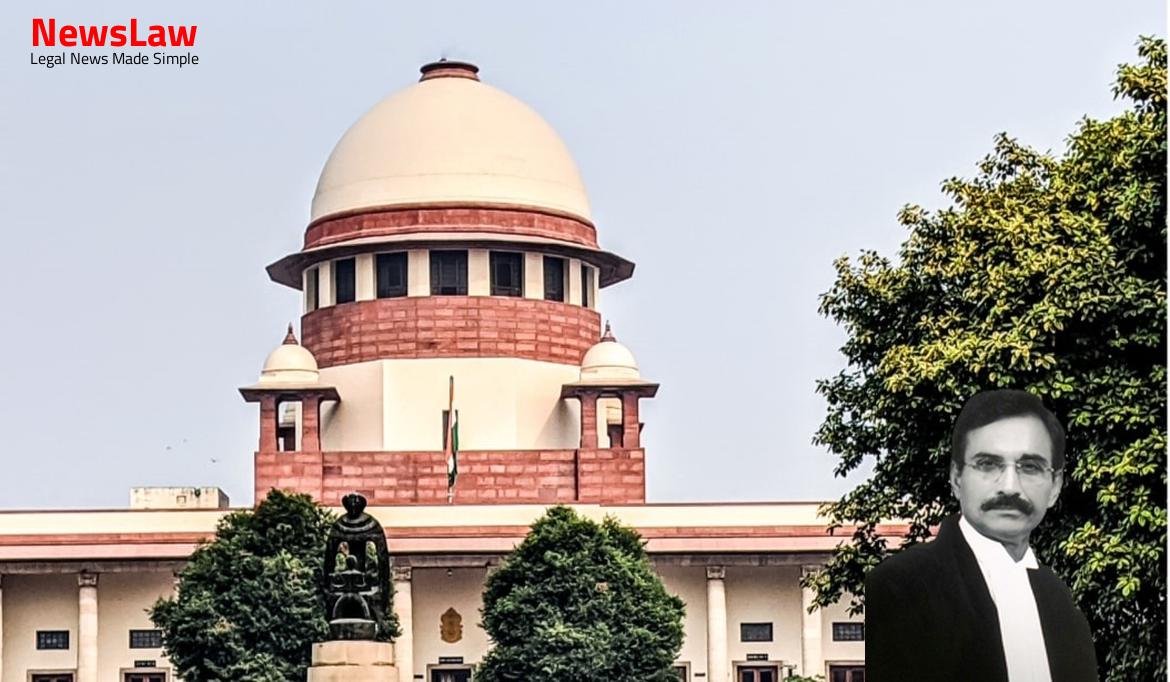The recent legal case delves into the court’s meticulous legal analysis in enforcing a foreign award. It highlights the importance of evidence and proof in establishing claims, emphasizing the narrow interpretation of legal terms and constraints on expanding grounds for challenging awards. The analysis explores the burden of proof in enforcing awards, the scope of public policy defenses, and distinctions between challenges on merits versus arbitration agreement validity. Let’s delve deeper into the complexities of the court’s legal scrutiny in such cases.
Facts
- A statement of claim dated 22 June, 2009 was filed before the learned Arbitrator naming Arun Dev Upadhyaya, DMC (India), DMC Global (company registered in Mauritius), Gemini Bay Consulting Limited (company registered in the British Virgin Islands), and Gemini Bay Transcription Private Limited as respondents.
- The relationship developed where ISS brought substantial customers identified as MedQuist Transcriptions Ltd and AssistMed, Inc. to the Company, acting as their representative.
- GBT filed a suit against ISS before the Civil Judge, Senior Division, Nagpur, seeking declaration that the Arbitration Agreement between the parties is not binding, injunction against arbitration proceedings, compensation, costs of the suit, and further reliefs.
- The learned Arbitrator raised four issues in a preliminary award on 23 December, 2009: determination of applicable law, jurisdiction over non-signatory parties, piercing the corporate veil of certain corporations, and exclusion of certain non-signatory parties from arbitration.
- The appeals raised questions related to Part II of the Arbitration and Conciliation Act, 1996, which deals with recognition and enforcement of foreign awards.
- On 18 September, 2000, a representation agreement was entered into between ISS and DMC, where ISS was to assist DMC in selling its goods and services to customers and receive a commission.
- Disputes arose between the parties leading to a notice for arbitration sent by ISS to Arun Dev Upadhyaya.
- Appeal against the Single Judge’s judgment was found maintainable under Section 50 of the Arbitration Act, 1996.
- The appeal was allowed as the appellants failed to prove any of the grounds under Section 48 to resist enforcement of the foreign award.
- A review petition was dismissed subsequently.
- Special leave was granted to DMC’s SLP on the condition of depositing a sum, which was not done leading to revocation of leave.
- Foreign award against DMC was deemed final and binding.
- The burden of proof to enforce a foreign award under Part II lies on the party in whose favor the award is made.
- The enforcement petition should have been dismissed due to the failure to meet the threshold burden of proof requirement.
- Section 48 grounds must be ‘proved’ to resist enforcement.
- The Division Bench held that the award could only be challenged if Delaware law on the alter ego principle was not followed.
- The award was found unenforceable against parties not originally part of the arbitration agreement.
Also Read: Interpretation of Section 43B: Debentures vs. Interest Payment
Arguments
- Shri Vishwanathan argued that damages were awarded without actual loss being proved before the arbitrator, citing the judgment in Agritrade International (P) Ltd. v. National Agricultural Coop. Mkting. Federation of India Ltd., 2012 SCC OnLine Del 896.
- Mr. Upadhyaya’s testimony regarding the termination of the Medquist contract was deemed self-serving, lacking substantiated information, and therefore not credible.
- The award directed the respondents to jointly and severally pay the claimant a specified sum within thirty days, with provisions for interest and reimbursement of fees and expenses.
- The claimant and respondents were responsible for their own attorneys’ fees, costs, and expenses as the arbitration clause did not provide for awarding attorneys’ fees.
- The award was in full settlement of all claims and counterclaims submitted to the arbitration.
- To enforce the award, the respondent sought help from the High Court of Judicature at Bombay, Nagpur Bench, due to being a foreign award.
- Shri Arif Bookwala supported the Division Bench judgment, highlighting that the addresses of the relevant parties were all at the same place in Nagpur.
- Arguments were made regarding the involvement of the client, the reasonableness of the findings, and the absence of proper reasoning in the award.
- Further submissions were made regarding the application of foreign law, the grounds for setting aside the award, and challenges based on jurisdiction and parties involved in the arbitration agreement.
- The respondent took the panel through the Award meticulously to demonstrate that the Arbitrator thoroughly considered the oral and documentary evidence presented by both parties.
- It was argued that detailed reasons are not necessary in an arbitral award as long as it is reasoned.
- The respondent countered the claim that evidence need not be presented by pointing out that the appellants had conceded before the learned Single Judge that only legal questions were at hand.
- It was contended that none of the grounds under Section 48 were applicable as they did not pertain to non-signatories to the arbitration agreement.
- The respondent emphasized that since no objection regarding public policy was raised by the appellants in the lower courts, the appeals should be dismissed.
- The respondent highlighted that poor reasoning leading to the rejection of a material issue or claim could never be acceptable.
- The argument regarding damages given in tort being outside the scope of the arbitration agreement was rejected.
- Shri Vishwanathan argued that the perfunctory nature of the reasoning in the Arbitrator’s Award would amount to a breach of natural justice, as ‘reasons’ form a crucial aspect of natural justice in India.
Analysis
- Section 44 of the Arbitration and Conciliation Act, 1996 outlines six conditions for an award to be considered a foreign award.
- Section 48(1)(b) does not mention the absence of reasons in an arbitral award.
- The grounds for refusing enforcement of a foreign award under Section 48(1)(b) are limited to natural justice issues related to notice and inability to present a case before the tribunal.
- The case of Vijay Karia has provided a narrow interpretation of Section 48(1)(b).
- A foreign award needs to be in compliance with the New York Convention to be enforceable.
- Evidence required for enforcement of a foreign award includes the original award, agreement for arbitration, and proof that the award is a foreign award.
- The analysis delves into the burden of proof in enforcing an award and the requirement for evidence to establish contentions.
- It discusses the scope of the public policy defense in recognition proceedings, emphasizing its narrow and exceptional character.
- The interpretation of the term ‘proof’ in Section 48(1) is explored in the context of foreign award enforcement.
- The judgement emphasizes the importance of ensuring fairness and a fair hearing in arbitral disputes.
- It highlights the constraints on expanding the grounds for challenging awards and the need for a narrow construction of legal terms.
- The role of evidence and proof in establishing claims related to damages and breaches under the Representation Agreement is elucidated.
- Additionally, it addresses the relationship between parties and non-signatories in arbitration agreements and the applicability of alter ego doctrine.
- The analysis underscores the distinction between challenges to awards on merits versus challenges to the arbitration agreement’s validity.
- Furthermore, it emphasizes the limited scope of review for enforcement of foreign awards under the Foreign Awards Act.
- Detailed references to legal provisions and precedents are made to support the analysis of the case.
- The part analyzes the intricacies of arbitration agreements, jurisdictional errors, and the impact of substantive law on the validity of awards.
- Section 31(2)(d) of the Singapore Act deals with the enforcement of the Award and may be refused if the award deals with a difference not contemplated by the arbitration submission or contains a decision beyond the submission scope.
- The parties agreed to decide pure questions of law based on admitted documents without the need for oral evidence.
- The grounds in Sections 48(1)(a) to (e) should be narrowly construed and not expansively.
- The court affirmed the arbitrator’s jurisdiction over the claims in tort as they were closely connected with the contract disputes.
- Albert Jan van den Berg’s treatise emphasized that courts enforcing foreign awards should not review the merits of the award.
- The arbitration agreement can be referred to parties directly, by an appointing authority named in the agreement, or by a court on application by a party to the agreement.
- Claims arising out of breach of contract or tort may be addressed in the arbitration award.
- The scope of enquiry under Sections 34/48 involves only specific grounds for challenge, and courts are not to reconsider arbitrators’ findings on mere erroneous legal reasoning.
- The New York Convention’s pro-enforcement bias places the burden of proof on parties objecting to enforcement of foreign awards.
- Foreign awards are not set aside based on mere poorly reasoned judgments but may be reviewed in exceptional cases of egregious circumstances.
- Damages awarded in this case are not excessive or shocking to the conscience of the Court.
- The appeals are dismissed without any order as to costs.
- Actual loss can be proven to have been suffered by ISS based on the facts presented before the arbitral tribunal.
Case Title: GEMINI BAY TRANSCRIPTION PVT LTD Vs. INTEGRATED SALES SERVICE LIMITED AND ANR. (2021 INSC 392)
Case Number: C.A. No.-008343-008344 / 2018



